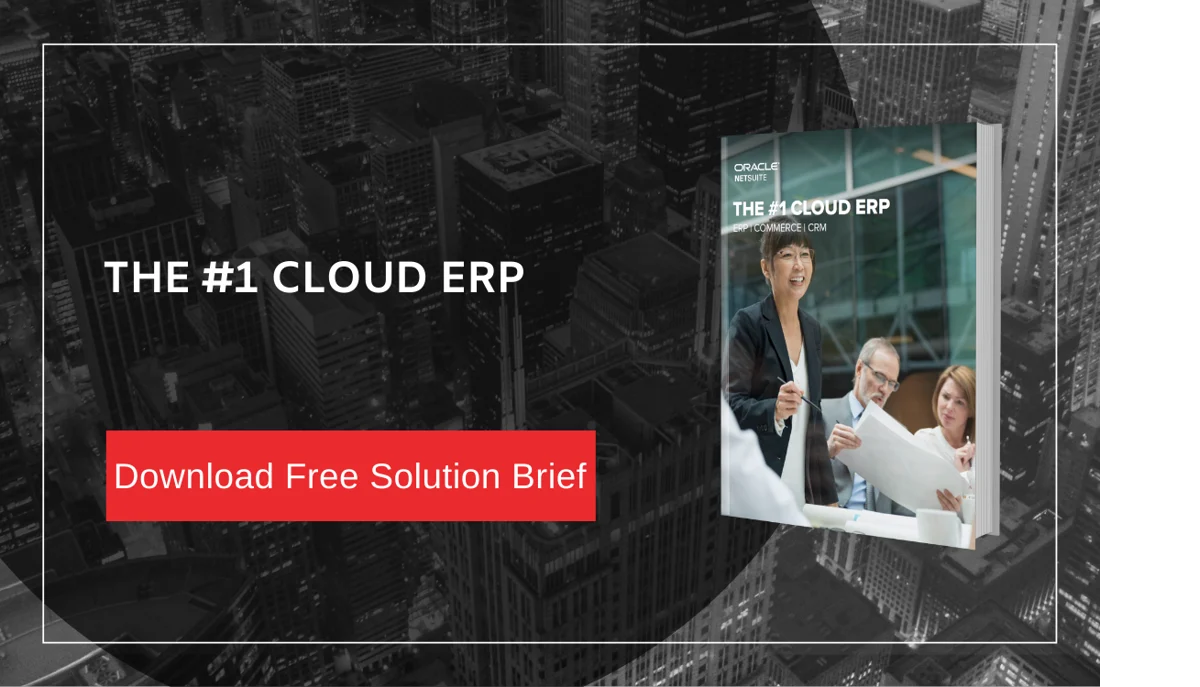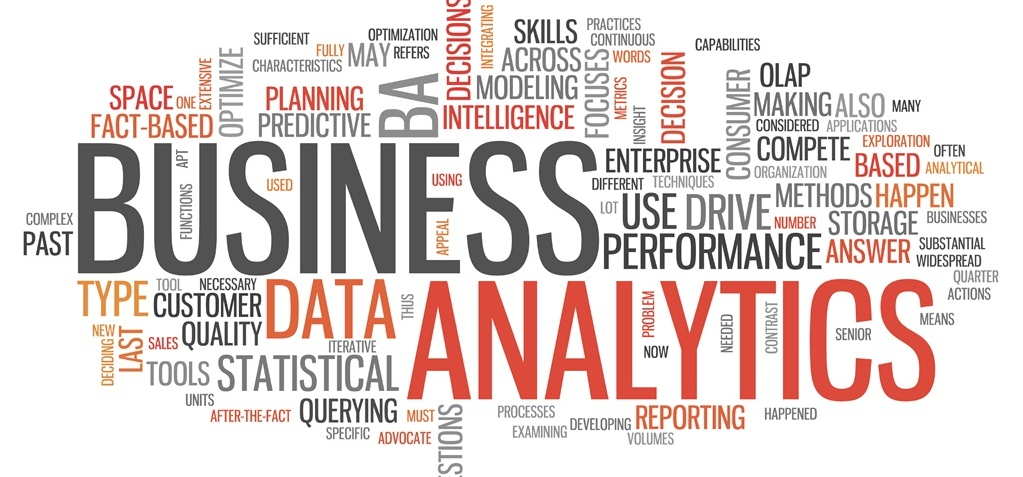Have you decided to take the leap, and invest in a cloud-based ERP software for your small business? If so, that’s great; you’ve taken your first step towards streamlining your operations, boosting efficiency, and driving growth.
However, with numerous options available in the market, choosing the right cloud-based ERP software for your unique business needs can be a daunting task. Therefore, it's crucial to understand that the best cloud-based ERP software for your small business will depend on factors such as your industry, company size, and specific requirements. Different ERP solutions excel in various areas, making them more or less suitable for businesses in different sectors.
In this blog post, we'll explore the most popular choices of cloud-based ERP software for small businesses. We'll delve into the individual strengths and benefits of each option, and help you gain a clear understanding of the top contenders in the cloud-based ERP software market, so that you may make an informed decision that aligns with your business goals.
Why Are Cloud ERP Software An Ideal Choice For Small Businesses? Here Are Five Compelling Reasons.
Why Should Small Businesses Choose Cloud-Based ERP Software Over On-Premise?
Before we begin, let’s have a refresher on why a small business might want to choose a cloud-based ERP software over an on-premise alternative.
An on-premise ERP software, by definition, is hosted on server hardware that has to be paid for and installed on the premises of a business. This requires significant initial investments that could potentially stretch the limited resources of a small business.
On the other hand, a cloud-based ERP software - because it's hosted on the cloud - doesn't require the same server hardware, which makes it more affordable for the small business in question.
|
Cloud-based ERP Software
|
On-premise ERP Software
|
Licensing Model
|
Subscription model based on monthly fees.
|
Perpetual license – one-time payment to own the ERP software in perpetuity.
|
Hardware Requirements
|
Not necessary – hosted on the cloud.
|
Requires investment in server hardware and space on company premises.
|
Maintenance Expenses
|
None – all maintenance is carried out by the vendor or reseller.
|
May involve large expenses associated with maintaining, upgrading or adding servers.
|
While both options have their merits, cloud-based ERP stands out as the preferred choice for many small businesses due to several compelling benefits;
Lower Upfront Costs
Cloud-based ERP software offer reduced upfront costs compared to on-premise solutions. Small businesses can avoid large initial investments in hardware, software licenses, and IT infrastructure. With cloud ERP software, you pay a subscription fee, usually on a monthly basis, making it more affordable and predictable.
Faster Implementation and Time-to-Value
Implementing a cloud-based ERP software is typically faster and less complex than an on-premise solution for a small business. The vendor handles the infrastructure setup and maintenance, allowing your business to focus on configuration and user training. This accelerated implementation timeline means you can start realising the benefits of your ERP software sooner.
Scalability and Flexibility
As your small business grows, a cloud-based ERP software can easily scale to meet your changing needs. You can quickly adjust user counts, data storage, and functionality without the need for expensive hardware upgrades or IT support. This flexibility allows you to adapt to market demands and seize new opportunities more efficiently.
Automatic Updates and Maintenance
With cloud-based ERP software, the vendor is responsible for maintaining the system, including installing security updates and feature upgrades. This ensures that a small business always has access to the latest technology and improvements without the need to dedicate resources towards maintaining a dedicated IT staff, or face disruptions to their operations.
Accessibility and Collaboration
Cloud-based ERP software enable your team to access critical business data and applications from anywhere, at any time, using any device with an internet connection. This enhanced accessibility promotes collaboration and productivity, especially for remote or distributed teams.
While cloud-based ERP offers numerous advantages, it's essential to carefully evaluate your specific business needs and consider potential drawbacks, such as data security concerns and customisation limitations. However, for many small businesses, the benefits of cloud-based ERP far outweigh the risks, making it an increasingly attractive option for driving growth and success.
Key Factors to Consider When Choosing A Cloud-based ERP Software
%20(1).png?width=1000&height=666&name=Benefits%20of%20Cloud%20erp%20over%20on-premise%20(1)%20(1).png) Factors to consider when choosing a Cloud-based ERP software
Factors to consider when choosing a Cloud-based ERP software
Selecting the right cloud-based ERP software for your small business is a critical decision that requires careful consideration of several key factors. To ensure you choose a solution that aligns with your unique needs and goals, keep the following points in mind:
Pain Points In The Business
Start by thoroughly assessing the pain points your small business is experiencing which led you to decide on acquiring a cloud-based ERP software in the first place. For example, your operations might currently be managed via manual processes and unconnected systems, leading to inefficiencies, human errors, and duplication of effort.
Other pain points you might be looking to solve could be a lack of real-time reporting hindering decision-making, or data silos hindering collaboration and communication between departments.
Scalability and Flexibility
Another factor to consider is how scalable you need your solution to be. By its nature, a cloud-based ERP software is much more easily scaled in line with the growth your small business experiences over time.
On the other hand, cloud-based ERP software also tend to be less flexible and customisable than their on-premise counterparts. With that in mind, it's best to choose one that strikes the right balance between your small business's need for scalability and flexibility respectively.
Integration Capabilities
Ensure that the cloud ERP software you select can seamlessly integrate with your existing systems and third-party applications. This will help streamline your processes and avoid data silos.
For example, it's easy to extend the capabilities of Microsoft Dynamics 365 Business Central by finding and installing third-party apps through Microsoft AppSource. The same goes for Oracle NetSuite, with its own SuiteApps store.
Business Central Users Tend To Overlook The Utility Of Microsoft AppSource. Find Out How It Makes Extending The Capabilities Of The ERP Software Easy.
User Experience and Adoption
Consider the user-friendliness and intuitiveness of the cloud ERP software. A solution with a modern, easy-to-use interface will promote faster user adoption and reduce training time.
For example, as part of the Microsoft family of software solutions, the user interface (UI) of Business Central greatly resembles that of other Microsoft productions. This, plus its seamless integration with Outlook, make it easier for employees of small businesses to pick up and start using the cloud-based ERP software.
Vendor Support and Reputation
Evaluate the level of support provided by the ERP software vendor, including implementation assistance, training resources, and ongoing technical support. Research the vendor's reputation, financial stability, and track record of successful implementations.
Well-known brand names in the cloud-based ERP software space include Acumatica, Epicor, and Oracle. The latter is especially reputable as one of the first movers in the cloud ERP market, and NetSuite - its solution for small businesses - manages and protects your business's data in Oracle's servers, giving you the same peace of mind enjoyed by its large enterprise customers.
Total Cost of Ownership
While cloud-based ERP software generally have lower upfront costs compared to on-premise solutions, it's essential to consider the total cost of ownership. Factor in subscription fees, implementation costs, customization expenses, and any potential hidden costs.
By carefully evaluating these key factors and aligning them with your business goals, you'll be better equipped to select a cloud ERP software that drives efficiency, productivity, and growth for your small business.
Top Cloud ERP Software For Small Businesses in Singapore
What Is It?
A comprehensive, all-in-one cloud ERP software that can serve the needs of businesses of all sizes and industries, Oracle NetSuite is Singapore's #1 true cloud ERP software.
What Is It Best Known For?
Built for the cloud from the ground up, NetSuite offers robust features for accounting, inventory management. It also makes managing multiple subsidiaries easy with NetSuite OneWorld, and comes with built-in business intelligence.
How Does It Review?
- 4.1 stars from 1,512 reviews on Capterra
- 4.0 stars from 3,158 reviews on G2
What Is It?
Formerly known as Dynamics NAV, Business Central is part of the Microsoft Dynamics 365 suite of cloud-based ERP software solutions, designed specifically to cater to the needs of small businesses.
What Is It Best Known For?
As part of the Microsoft ecosystem, Business Central can be easily customised with add-ons from AppSource. Its capabilities can also be easily extended with other Microsoft solutions, such as Power BI for business intelligence.
How Does It Review?
- 4.0 stars from 157 reviews on Capterra
- 43.9 stars from 616 reviews on G2
What Is It?
A flexible and scalable financial platform that delivers deep accounting capabilities, Sage Intacct is preferred by SMEs across multiple industries for its ease of use, integrated multi-dimensional reporting, and more.
What Is It Best Known For?
Sage Intacct powers strategic decisions thanks to its rich, multi-dimensional reporting features. It also tracks and manages the finances and operations of multiple entities with ease.
How Does It Review?
- 4.2 stars from 388 reviews on Capterra
- 4.3 stars from 3,199 reviews on G2
What Is It?
A comprehensive open-source platform, Odoo ERP is highly customisable for all business-centric requirements, regardless of a business's size or budget.
What Is It Best Known For?
Designed as an all-in-one solution, Odoo ERP offers every feature a small business needs to run efficiently such as CRM, Sales, Project, Manufacturing, Inventory, and Accounting, just to name a few.
How Does It Review?
- 4.1 stars from 802 reviews on Capterra
- 4.2 stars from 237 reviews on G2
What Is It?
Offering best-in-class functionality, Acumatica Cloud ERP is designed to be the best business management solution for small businesses,
What Is It Best Known For?
Acumatica is built on a future-proof platform to facilitate scalability, ease-of-use and rapid integrations. It can also come in specialised industry editions.
How Does It Review?
- 4.3 stars from 122 reviews on Capterra
- 4.5 stars from 1,211 reviews on G2
Make The Right Choice Of Cloud-based ERP Software For Your Small Business Today
In conclusion, cloud-based ERP software offers small businesses numerous benefits, including lower upfront costs, faster implementation, scalability, automatic updates, and enhanced accessibility.
When choosing a cloud-based ERP solution, it's crucial to consider factors such as business requirements, scalability, integration capabilities, user experience, vendor support, and total cost of ownership. By carefully evaluating these key factors and selecting the right cloud ERP software, small businesses can drive efficiency, productivity, and growth.
In addition, part of choosing the right cloud-based ERP software for your small business is finding the right implementation partner for your chosen solution as well. Since 1999, we at AFON IT Pte Ltd have been the award-winning consultancy and implementation partner for two of the cloud ERP software featured above; Oracle NetSuite, and Microsoft Dynamics 365 Business Central.
Therefore, if one of these two top cloud ERP software for small businesses is your eventual choice, do consider getting in touch with us. You can do so by giving us a call at +65 6323 0901, or dropping us a note here; our consultants will get back to your shortly.
Or, if you're not yet decided, click on either of the images below, and find out how Oracle NetSuite and Microsoft Dynamics 365 Business Central, respectively, can be the right cloud ERP software for your small business.

%20(1).png?width=1000&height=666&name=Benefits%20of%20Cloud%20erp%20over%20on-premise%20(1)%20(1).png)




